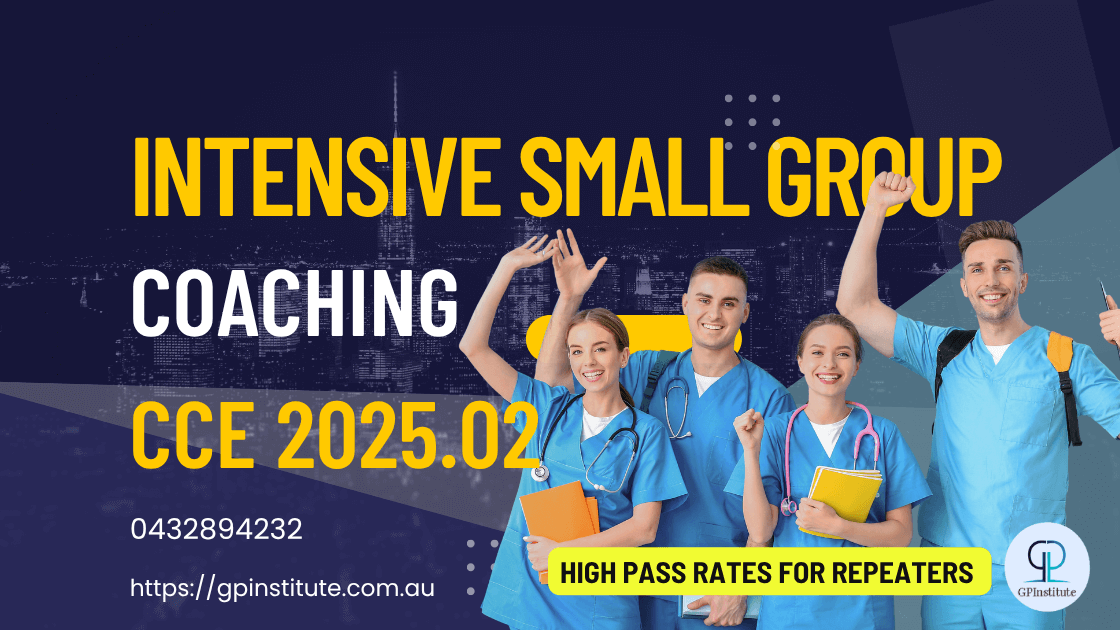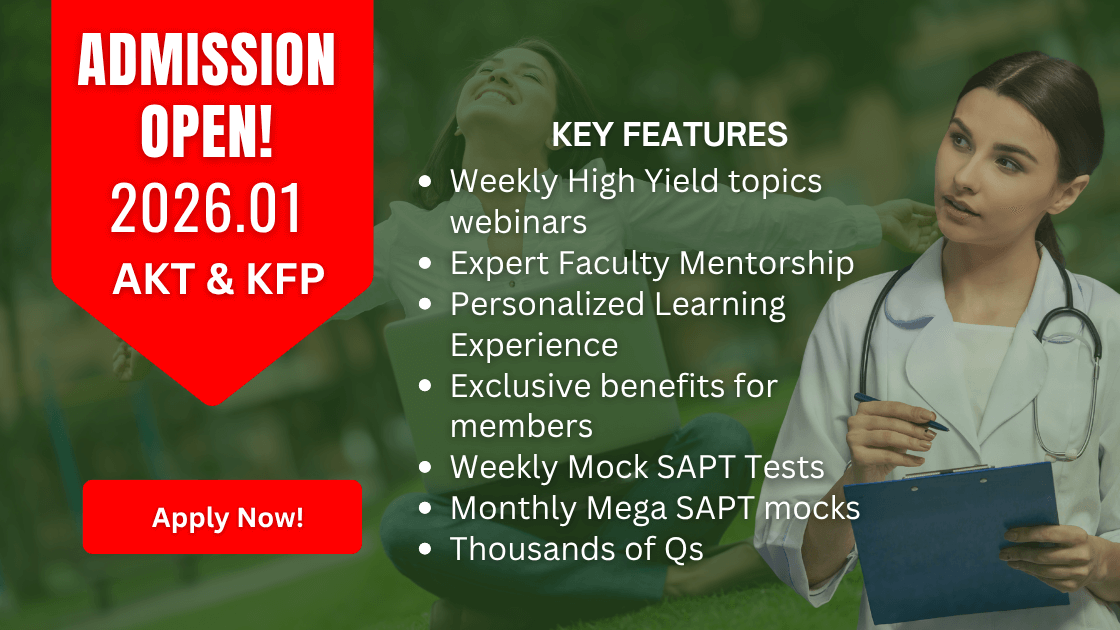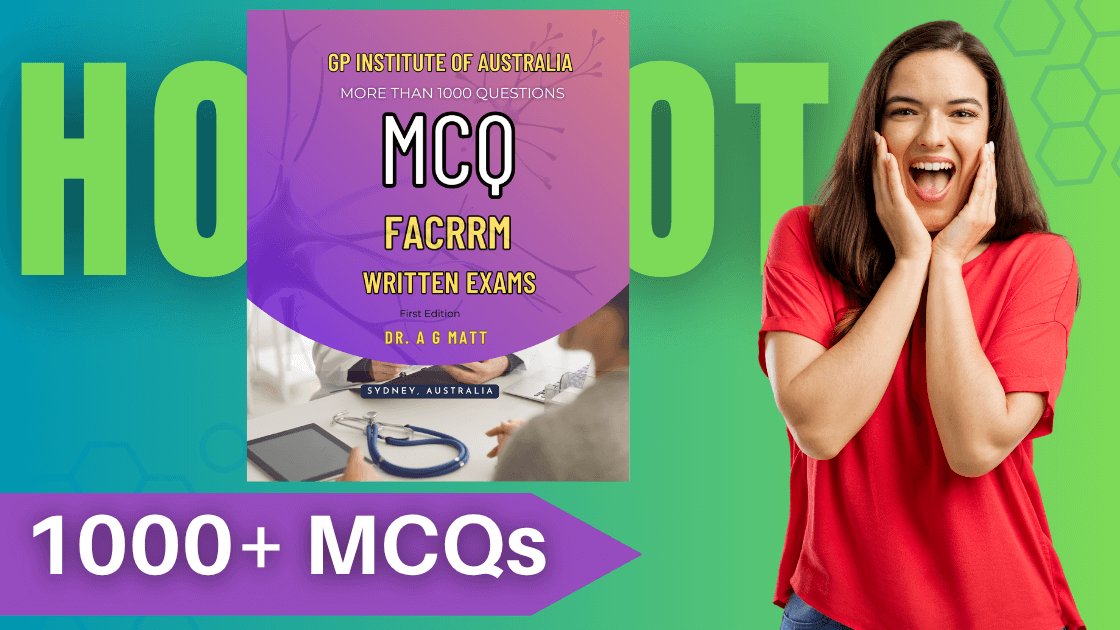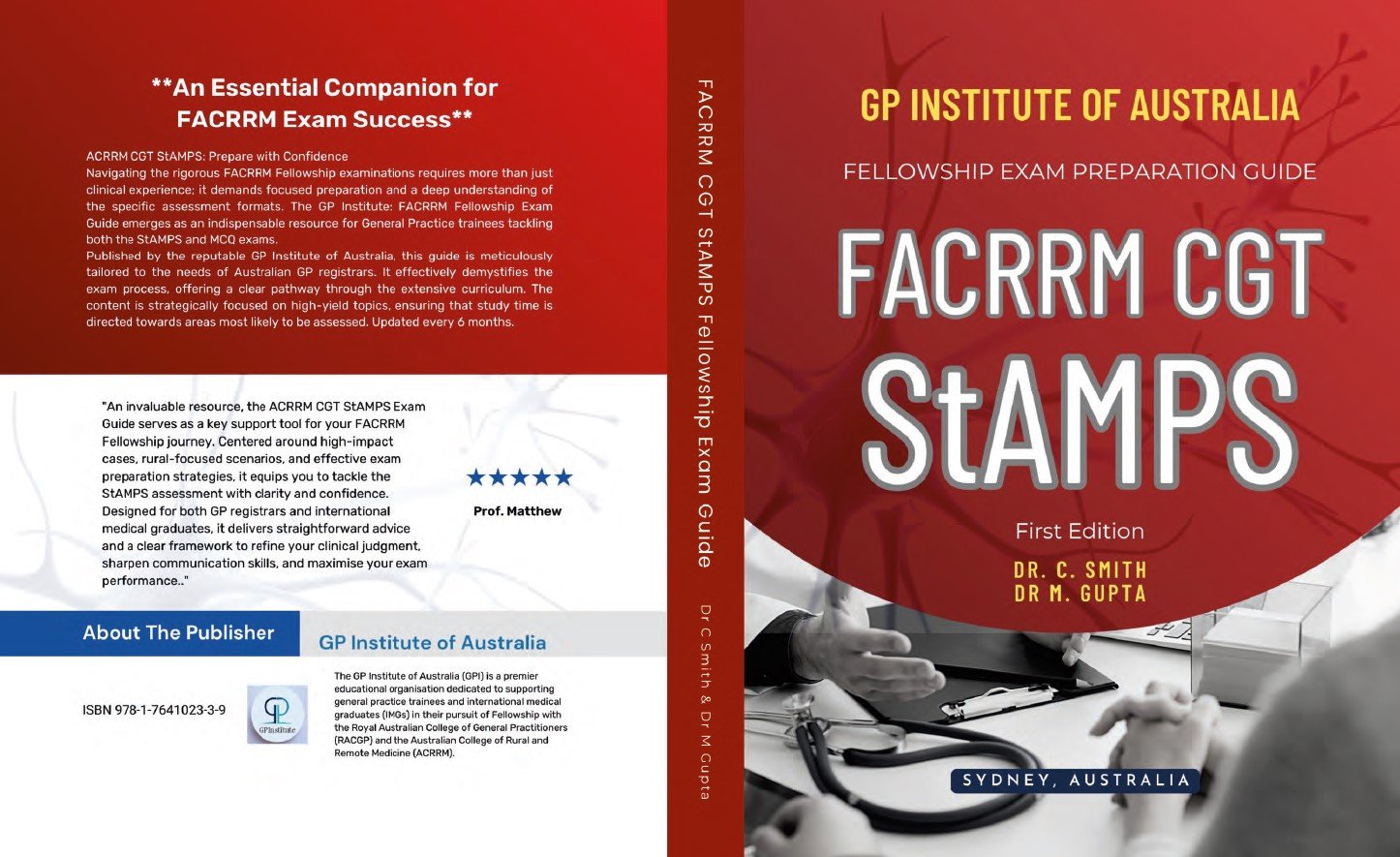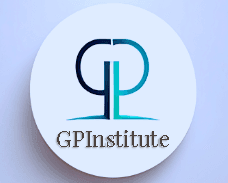We thank our lovely past and present GP trainees who left these beautiful reviews!
💕Your Trust we have earned! Proud to wear our trust badge! 💕
For over 20 years our Chief Examiners have helped trainees become VR GPs with expert guidance, tailored training, and unwavering support.
Key Takeaway
Investing in the GP Institute Course is a strategic investment in your future. This comprehensive, expert-led program covers all essential competencies, saving you time, money, and effort. It significantly enhances your chances of passing the fellowship exams on your first attempt and prepares you for real-world practice. By enrolling in the course, you ensure a more efficient, cost-effective, and rewarding path to becoming a successful GP Fellow.
We are proud to be the only provider who offers this much value!
More than 10000 Flashcards to help you pass! Flashcards DEMO

Ms. Carter, a 45-year-old woman from Brisbane, presents to Dr. Lee with progressive swelling and a thickened, warty appearance of her lower leg. Over 6 months, the leg has become heavy and swollen, with no pitting, and examination reveals a positive Stemmer sign (inability to pinch a skin fold at the base of the second toe). She has no fevers or signs of acute infection.
Which of the following is the MOST appropriate management for Ms. Carter?
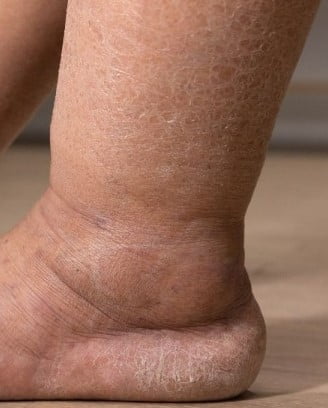
Apply graduated compression bandages and use appropriate wound dressings.
Question Explanation:
Answer:
A. Apply graduated compression bandages and use appropriate wound dressings. ✅
Detailed Explanation
Ms. Carter’s history and examination—progressive, non-pitting lower leg swelling, skin thickening with a warty (verrucous) surface, and a positive Stemmer sign—are diagnostic for chronic lymphoedema. Lymphoedema is a chronic, progressive disorder of lymphatic drainage that leads to protein-rich interstitial fluid accumulation, fibrosis, hyperkeratosis, and increased infection risk. The Stemmer sign is both highly sensitive and specific for lymphoedema.
Management Principles:
-
Graduated Compression Therapy:
-
The cornerstone of lymphoedema management is the use of graduated compression bandages or garments, which apply the greatest pressure distally (at the ankle/foot) and progressively less proximally, thereby promoting lymphatic fluid movement and reducing limb volume.
-
Evidence strongly supports the effectiveness of compression therapy for reducing swelling, limb volume, pain, and heaviness, with effect noted within hours of application.
-
Compression is typically combined with wound care if appropriate (for skin changes), meticulous skin hygiene, regular moisturisation, and management of any breaks/ulcers in the skin.
-
-
Other Key Elements:
-
Exercise and mobility (to activate muscle pump and enhance lymphatic flow)
-
Manual lymph drainage (MLD): a specialised physiotherapy technique, often used in addition to compression
-
Good skin care: daily cleaning, avoidance of cuts, scratches, and prompt treatment of minor injuries to reduce infection risk
-
Weight reduction and healthy lifestyle (as obesity worsens lymphoedema)
-
Education: patients should be advised about lifelong risk and prevention of triggers (e.g., avoid constrictive clothing, trauma, unnecessary limb procedures)
-
Other Answers Explained
-
Corticosteroids: Not indicated unless there is concurrent eczema/dermatitis, and can worsen infection risk.
-
Skin biopsy: Only if there is an atypical lesion; diagnosis is clinical in classic presentations.
-
Antibiotics: Reserved for clinically evident cellulitis or secondary bacterial infection, not for primary lymphoedema management.
-
Topical antifungals: Only used if tinea is confirmed.
-
Diuretics: Ineffective in true lymphoedema and are not routinely recommended; reserved for management of coexisting cardiac/renal pathology.
-
Immediate surgery: Not indicated unless there is acute infection not resolving with conventional management or another surgical problem.
Key Australian Guideline and Exam Points
-
Graduated compression therapy is the gold-standard treatment for lymphoedema, supported by Level 1 evidence.
-
Multidisciplinary assessment (consider lymphoedema practitioners, physiotherapists, podiatry, and wound care nurses) is recommended for optimal management.
-
Meticulous skin care and patient education about long-term measures are essential for preventing complications (e.g., cellulitis).
-
Surveillance and early management are critical, as chronic lymphoedema is irreversible, but complications can be significantly reduced with best-practice care.
References
-
RACGP. LYMPHOEDEMA: Guide for Diagnosis and Management in GP Practice
-
DermNet NZ. Lymphoedema—Diagnosis and Management
-
StatPearls. Lymphedema
-
Evidence summary: Managing lymphoedema: compression therapy. Cambridge Media, 2024
-
LympheDIVAs. Graduated Compression for Lymphedema
-
ACI NSW. Lymphoedema: A guide for clinical services
-
Murtagh J. General Practice (8th ed.), 2022
-
GP Institute of Australia. FRACGP AKT & KFP Guide, 2025

Cameron, a 6-year-old boy living in coastal New South Wales, returns to your general practice with his mother following a persistent, widespread rash. One week earlier, he was diagnosed with an allergic rash and prescribed an antihistamine, but there has been no improvement. Cameron is otherwise healthy, with no personal or family history of eczema, asthma, or hay fever. He has not been unwell, has no fever, and continues to play energetically outside during unusually warm spring weather. His mother reports no changes in diet, detergents, or soap, and no known contacts with similar symptoms. Notably, she recalls that about a week ago, a single, larger patch appeared on Cameron’s chest 5 days before the remainder of the rash erupted. The current rash is slightly itchy, covers his trunk and upper limbs, appears as multiple oval pink patches (1–3cm), some with fine scaling at the edges, and seems to follow the skin creases (“Christmas tree” pattern). Examination is otherwise normal, with Cameron appearing well and afebrile.
Past Medical History / Medications:
-
No known chronic illnesses or allergies
-
No current medications except for recent short-term antihistamine
-
Up-to-date with immunisations
Examination Findings:
-
Afebrile, normal vital signs
-
Skin: Widespread oval erythematous patches, 1–3cm, some with collarette of scale, most prominent over trunk and proximal limbs, distribution following skin lines; larger “herald” patch on chest
-
No mucosal lesions, no lymphadenopathy, and no signs of systemic involvement
Question:
What is the most likely diagnosis for Cameron’s current rash?

Pityriasis rosea
Question Explanation:
Correct Answer: A. Pityriasis rosea ✅
Detailed Explanation:
Pityriasis rosea is the most likely diagnosis given this scenario. It classically begins with a “herald patch”—a single, larger, round/oval lesion with a collarette of scale, presenting days to a week before a secondary eruption of multiple, similar, but smaller oval patches. The distribution typically involves the trunk and proximal limbs, aligning along skin tension lines (so-called “Christmas tree” distribution). The absence of systemic symptoms, absence of fever, and the self-limiting, slightly itchy nature are also characteristic. Pityriasis rosea is common in children and adolescents and is often misdiagnosed initially as allergy or fungal infection.
-
B. Tinea corporis: ❌ Tinea typically produces round, annular, scaly plaques with central clearing, often singular or very few in number, not this widespread pattern or the preceding herald patch.
-
C. Psoriasis: ❌ While psoriasis may produce well-demarcated, red, scaly plaques, chronicity, typical elbow/knee predilection, and absence of a herald patch or Christmas-tree pattern make this unlikely.
-
D. Eczema: ❌ Atopic dermatitis is less common in children without history or family history of atopy, typically involves flexural surfaces, and is usually chronic, excoriated, and intensely pruritic.
-
E. Drug eruption: ❌ Drug-induced rashes are often more polymorphic, symmetrical, and involve the face or mucosa; no medication change preceded the rash.
-
F. Guttate psoriasis: ❌ Presents after a strep infection with drop-like scaly papules but without a herald patch or scale collarette.
-
G. Viral exanthem: ❌ Viral exanthems may appear after systemic symptoms (fever, malaise, URTI), none of which are present here.
Australian guidelines (RACGP, Therapeutic Guidelines: Dermatology, GP Institutes Fellowship AKT KFP guide) recommend that pityriasis rosea be diagnosed clinically in children with the classic pattern, and parents reassured that it is benign and self-limiting, resolving over 6–12 weeks. Antihistamines and emollients may provide symptomatic relief; rarely is further testing or referral needed unless atypical features or persistence prompts reconsideration.
References:
-
Royal Australian College of General Practitioners (RACGP). "The itchy child: Pityriasis rosea in general practice."
-
Therapeutic Guidelines: Dermatology (current edition).
-
Medical Journal of Australia. "Pityriasis rosea: Clinical diagnosis and management in children."
-
GP Institute of Australia. FRACGP AKT & KFP Exam Preparation Guide (1st ed.).
-
Murtagh J. Murtagh’s General Practice (8th ed.), McGraw-Hill Education (Australia) Pty Ltd.
-
Australasian College of Dermatologists. “Clinical Practice Guideline for Diagnosis and Management of Paediatric Rash.”
-
Australian Prescriber. "Diagnosis and management of rashes in children."
More than 4 hours of exam oriented Statistics Video Tutorials!
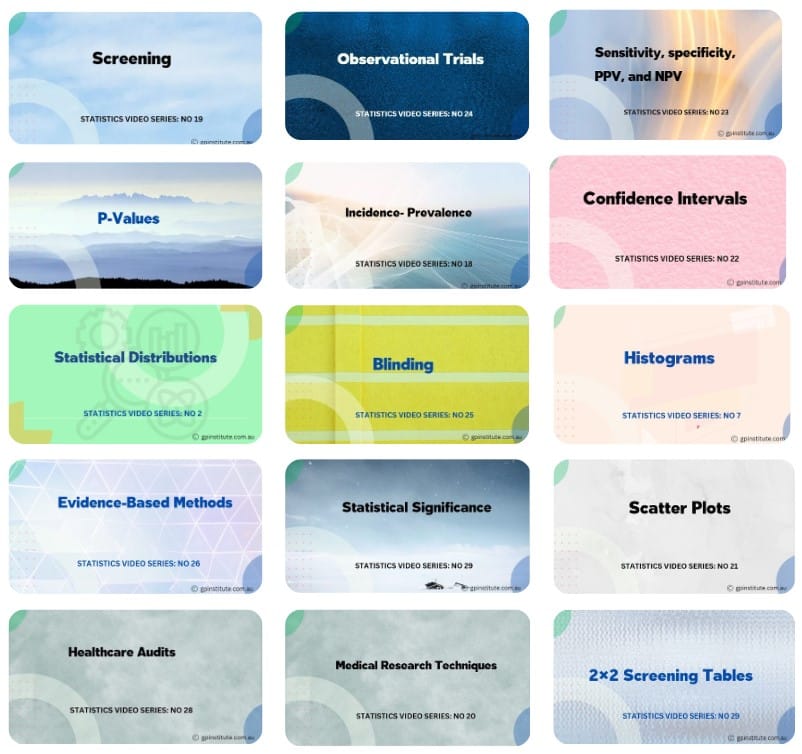
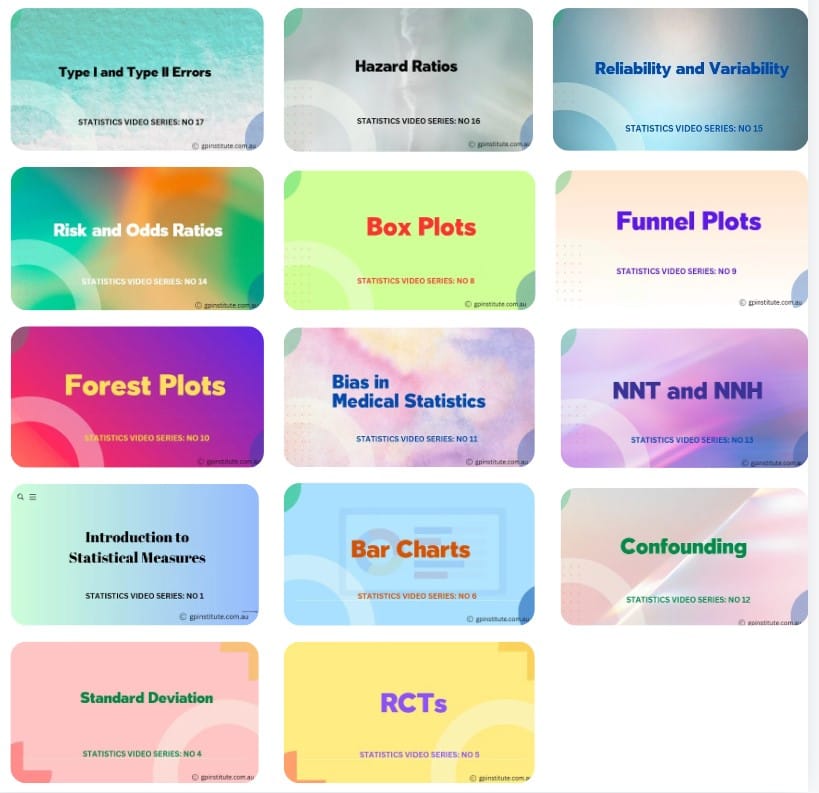
Upcoming LIVE FREE Events- Updated daily
Join Our Facebook Group for regular updates
Join GP Institute’s Whatsapp Group for regular daily updates(Access via mobile)
Only Australian and New Zealand GP trainees can join these groups
Join CCE group – https://chat.whatsapp.com/Cdp4HoMr7j63PwdFpMHIW1
Join KFP Group – https://chat.whatsapp.com/GOs5jUlHDqd2DL4naoLgaA
Join AKT Group – https://chat.whatsapp.com/KAmRKqciYPH0vJCi8ntIdM
Join AGPT CASPER Group – https://chat.whatsapp.com/C5lYmkA8WNh0HXyHdPNHzV
More than 6 hours of everyday clinical governance practice and exam oriented tutorials!
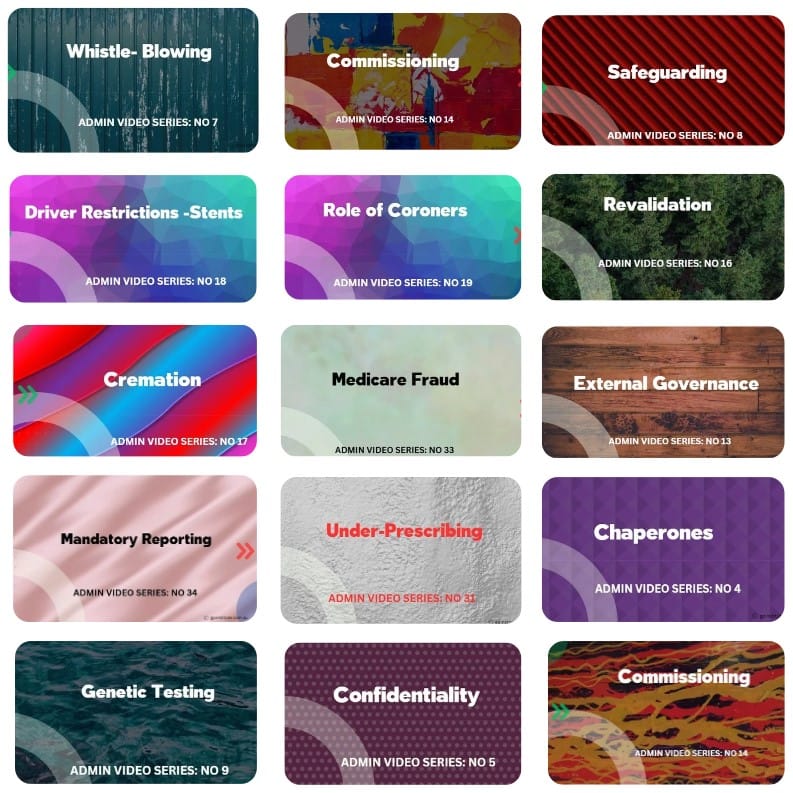
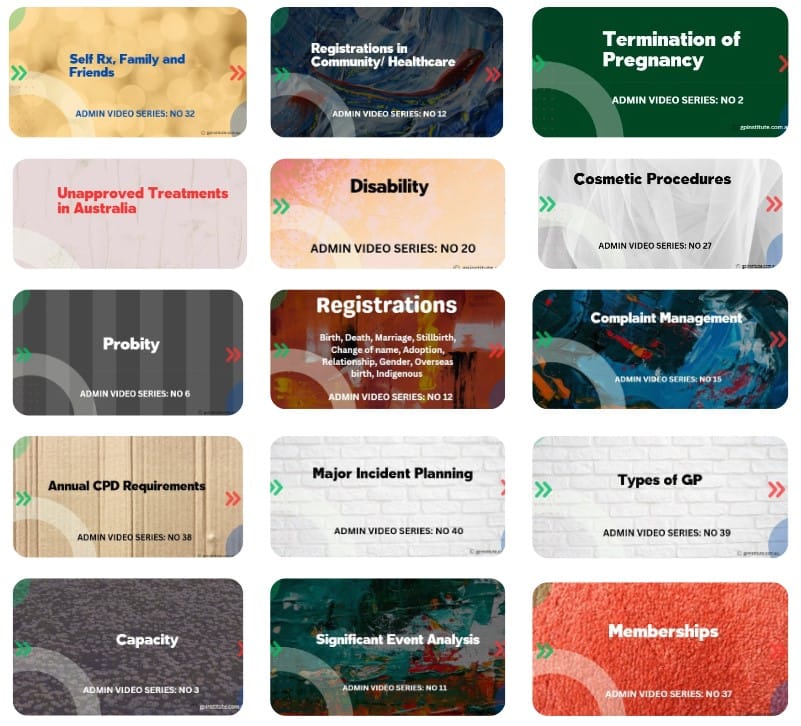
Fellowship AKT & KFP exam preparation textbook guide- Only $189!
Revise High Yield Notes & Flashcards(worth $699) in 15 days, absolutely free with every course!
Pass the exam with ease!
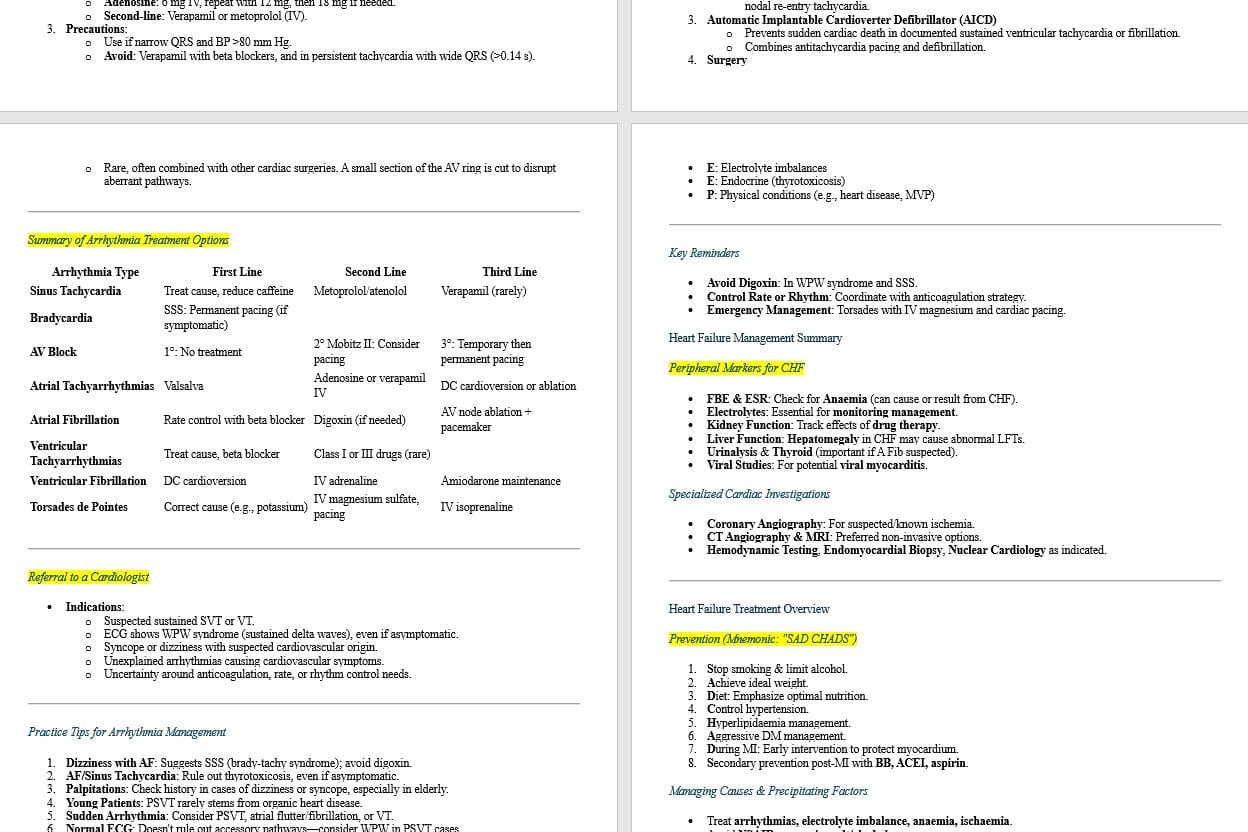
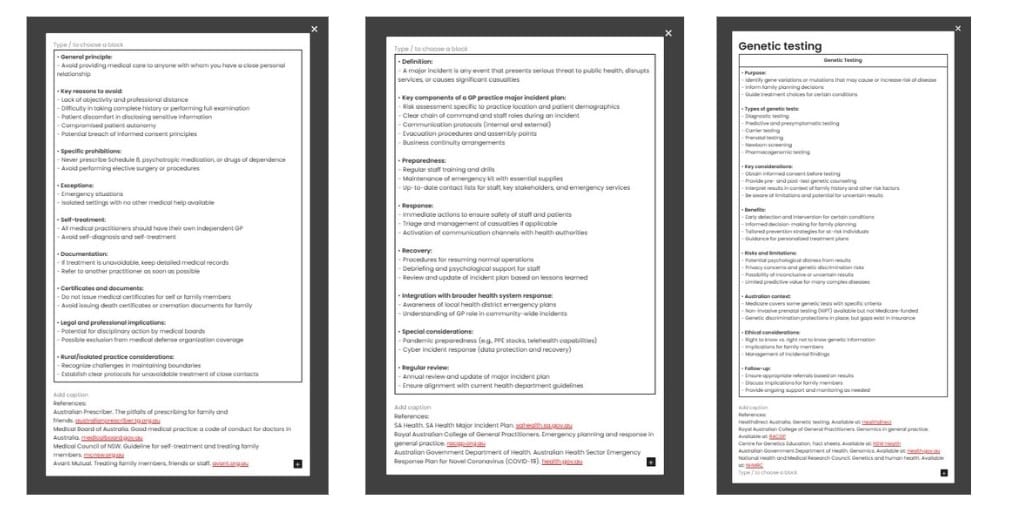
The GPInstitute practice exams are designed to be at or slightly above the difficulty level of the actual Fellowship exams. This helps candidates thoroughly prepare and build confidence for the exam day. Our detailed explanations break down the reasoning behind each question-and-answer option. We do not over burden the learning process with very basic information. We aim to upskill your technique in answering the Questions.
Our question banks are curated and carefully written by past National Chief Examiners who have written real Qs before. Practicing our Mocks include all the recent and past exam Qs which will get you 30-40% of the marks in your pocket even before you sit the exam. Our only aim to make you pass the exam by covering all the Domains and the Core Competencies. We have extensively covered the majority of the RACGP recommended texts, CHECKS, AJGP, Therapeutics Guidelines and journals. All High Yield Topics are included in our Mock and Practice exams.
Our full-length mock practice exams consist of questions matching the format of the real exam.
Depending on the fellowship exam component you are taking, we offer the highest quality and quantity of the mock exams. AKT 24 mocks, KFP 12 mocks, ACRRM MCQs > 20 mocks. Our members who score 60-65% in our mocks easily pass the real exams. Our practice exams will consist of same number of Questions in each of the mock exam just like the real exams.
While exact pass marks vary, we recommend aiming for a score of 60- 65% or higher on our practice exams to be well-prepared for the actual exams. Reviewing explanations for incorrect answers is key to improving your score. The higher the better.
No, we are proud to offer maximum value to our trainees. We offer more for 6 months than what others offer for 3 months at a better price. How good is that! We offer subscriptions for 9, 6, 5, 4, 3, 2 and 1 month to choose from. We highly recommend a minimum of 6 months subscription.
Whilst there is no difference between the types of questions in the exams for overseas trainees, we are more than happy to mentor and counsel overseas trainees if needed.
We offer unbeatable value in terms of price and quality
At the GP Institute, our sole mission is to help you achieve your fellowship. Founded by International Medical Graduates (IMGs) who have diligently worked within the healthcare system, we are committed to guiding trainees through the exam process in the easiest and smartest way possible. With Chief Examiners and highly qualified educators who have themselves achieved top scores, we possess an in-depth understanding of the core curriculum that sets us apart.
Our courses are meticulously designed to provide comprehensive skills coverage, focusing on all ten RACGP domains and six ACRRM domains, including Communication, Clinical Information, Diagnosis, Management, Prevention, Professionalism, Systems, Procedures, Uncertainty, and Managing Ill Patients.
Many of our members are often surprised by how our emphasis on the core competencies—often underestimated in their importance—plays a pivotal role in successfully passing the exams. We ensure that every essential domain is covered to help you succeed.
By partnering with the GP Institute and leveraging its expertise, our members unlock a wide array of benefits aimed at optimizing both their preparation and career progression:
1. Comprehensive, Expert-Led Education
Our courses are carefully crafted and delivered by experienced GPs and educators, offering a structured and focused learning experience. This expert guidance ensures that members acquire a deep understanding of essential concepts and skills necessary for fellowship exams, allowing them to navigate complex topics with confidence.
2. Streamlined Exam Preparation
Through our partnership, members save valuable time by eliminating the need to independently identify and focus on crucial topics. The structured curriculum ensures that every aspect of the exam is thoroughly covered, minimizing the risk of overlooking vital content. This approach allows members to concentrate on mastering the required competencies, without the time-consuming task of sourcing resources.
3. Enhanced Diagnostic and Decision-Making Skills
Members benefit from tailored courses that focus on developing key competencies such as clinical information gathering, diagnosis, decision-making, and reasoning. These vital skills enhance the ability to make informed, evidence-based decisions in patient care, ultimately improving diagnostic accuracy and treatment effectiveness.
4. Strengthened Professional Competencies
The Professionalism module cultivates essential skills such as ethical behavior, self-awareness, and the ability to integrate feedback into practice. This focus on professional growth improves patient management, ensures adherence to guidelines, and equips members to identify when to appropriately refer patients, contributing to enhanced care quality.
5. Holistic Approach to Preventative Health
Through our Preventative and Population Health curriculum, members learn how to implement evidence-based health promotion strategies and identify public health risks. This empowers them to provide proactive care, ultimately improving patient outcomes and enhancing community health.
6. Reduced Financial and Emotional Burden
By partnering with the GP Institute, members can avoid the financial burden of retaking exams, including the potential $60,000 loss in income and examination fees. The structured support and expert guidance significantly reduce the emotional and mental toll of re-examination, ensuring a clearer path to success and faster career advancement.
7. Ongoing Professional Development
Members gain access to continuous learning opportunities with resources and support tailored to their evolving needs. This ongoing development ensures that members remain competitive and confident in their careers, while also fostering a supportive network of professionals for sharing insights and experiences.
Expert-Led Instruction
Our courses are delivered by experienced GPs and educators, ensuring that members receive a structured and focused learning experience. This expert guidance optimizes understanding and retention of key concepts, accelerating the learning process and enabling quicker comprehension.
Effort Reduced: With expert support, members can overcome the challenges of self-learning, leading to clearer understanding of complex topics and improved exam performance.
Compared to other course providers- we offer the best value- others charge $2945 for 6 months we charge from $1300, we offer in addition Flashcards worth $699 for free. Our massive Qbank and 20+ Mock exams are worth $4999 by itself. And on top we offer hours and hours of webinars and lectures. So yeah we offer unbeatable value in terms of price and quality.
Reduces the risk of having to retake the exam by covering all necessary areas, potentially saving around $60,000 (including lost income by not becoming a full VR GP and pay hefty exam fees again).
A structured curriculum saves time by eliminating the need to identify and focus on key topics independently.
A streamlined program eliminates the need to search for separate resources, ensuring comprehensive coverage without additional effort. Most importantly is you save yourself from loss of self esteem and mental well being.
Yes, we do in all aspects. Expert support reduces the challenges of self-learning and ensures clarity in complex topics.
Key Competency Development such as Communication & Consultation Skills:
Develops your ability to engage patients effectively and adapt to diverse cultural contexts.
Enhances patient interactions and can lead to improved billing outcomes through better patient rapport.
Time Saved: Builds confidence in consulting skills, making patient interactions more efficient.
Money Saved: Improved efficiency and patient satisfaction may lead to better billing outcomes.
Effort Reduced: Practical strategies help you engage with patients and adapt to various cultural contexts effectively.
Balancing full-time practice while studying can be challenging, but it is possible to gain all the necessary skills with a structured approach.
Clinical Information Gathering & Interpretation
Focus on biopsychosocial history-taking and investigation selection to build a strong foundation for evidence-based management. This will enhance your diagnostic accuracy, allowing you to reduce unnecessary tests and associated costs. Incorporate structured methods to streamline the information gathering process, making it more efficient despite your busy schedule.
Diagnosis, Decision-Making, & Reasoning
To manage both practice and study, focus on synthesizing clinical data, formulating accurate diagnoses, and creating patient-centered plans. This holistic approach will speed up decision-making with structured processes, enabling you to deliver efficient care while avoiding unnecessary treatments, ultimately saving both time and costs.
Preventative and Population Health
Integrate health promotion strategies and identify public health risks to adopt a more proactive care model. This not only improves patient outcomes but also allows you to remain focused on long-term health goals, ensuring you stay aligned with both your clinical duties and educational goals.
By using a systematic and efficient approach, you can integrate these key competencies into your routine, balancing your professional practice and ongoing education.
To ensure you are on the right path toward passing the exams, focus on the following core competencies:
Professionalism
Develop and demonstrate ethical behavior and self-awareness, while integrating feedback into your practice improvement. This enhances patient management and ensures compliance with guidelines, contributing to the sustainability of your practice.
Competence in Procedures
Cultivate competence in performing common procedures safely and effectively. Recognize when to refer patients appropriately to ensure the highest standard of care.
Managing Uncertainty and Decision-Making
Learn techniques to address ambiguous conditions and use time as a diagnostic tool. Master the ability to make well-informed decisions despite uncertainty.
Emergency Management
Acquire the skills to recognize and manage life-threatening conditions, with an emphasis on collaborating with emergency services when necessary. This will equip you with the capability to handle complex, high-pressure situations confidently.
By consistently focusing on these areas, you will ensure that you are thoroughly prepared and on the right track to pass the exams.
The costs of not passing the fellowship exam extend beyond the immediate financial and emotional impacts. This is even more true for IMGs who face significant harship if they are unable to celar the exams. These include:
1. Financial Loss
The potential financial loss can amount to approximately $60,000, which includes not only the re-examination fees but also the reduced income due to the delayed transition from GP trainee to a fully accredited GP. This delay in achieving fellowship status can prevent you from earning at the full potential of a fully-qualified GP, as trainees typically earn less than their fellowed counterparts.
2. Career Delays
An additional 6 months spent as a GP trainee can significantly postpone your career advancement. This delay not only affects your earning potential but also limits your ability to take on more complex cases, develop further clinical expertise, and contribute more effectively to your practice and community.
3. Emotional and Mental Toll
The emotional stress of retaking exams can be substantial. The frustration and disappointment of having to repeat the exam can lead to feelings of discouragement and anxiety. This can also affect personal well-being, potentially leading to burnout and increased pressure as you strive to balance work, study, and family commitments.
4. Missed Professional Opportunities
While delayed qualification can hinder your earnings, it may also reduce access to higher-level professional opportunities, including leadership positions, teaching roles, and specialized training that are available only to fully qualified GPs. The time spent waiting for re-examination can limit your ability to pursue these opportunities.
5. Long-Term Impact on Career Trajectory
Continual setbacks in passing the fellowship exam can have a long-term effect on your career trajectory. Delays can affect your professional reputation and influence how peers, patients, and employers view your qualifications and career progression.
In summary, failing to pass the fellowship exam can lead to significant financial loss, delayed career progression, emotional stress, and missed professional opportunities—all of which underscore the importance of thorough, focused preparation for this pivotal examination.
Our Trusted Partners- Only the Best!

All content provided by GP Institute of Australia on this platform, including all text, graphics, images, videos, and data compilations, is the exclusive property of GP Institute of Australia © 2025 and is rigorously protected by the Australian Copyright Act 1968 (Cth) and international copyright laws. You are strictly forbidden from copying, reproducing, downloading, saving to any device (computer, mobile, etc.), storing, distributing, transmitting, modifying, publishing, or otherwise exploiting any content in any form without the express prior written consent of GP Institute of Australia. Any unauthorised use, copying, or storage of this content constitutes a direct infringement of our copyright and a violation of our terms; such actions, particularly if involving the circumvention of technological protection measures, may also contravene other relevant Australian laws, potentially including computer offence provisions under the Criminal Code Act 1995 (Cth). GP Institute of Australia will actively pursue all available legal remedies against infringement, which may include seeking injunctions, financial damages, legal costs, and, where applicable, referral for criminal prosecution. Your access and use of this platform signify your agreement to these terms.
More than just a course
We help you to get the outcome you desire. We give you the tools to succeed!
